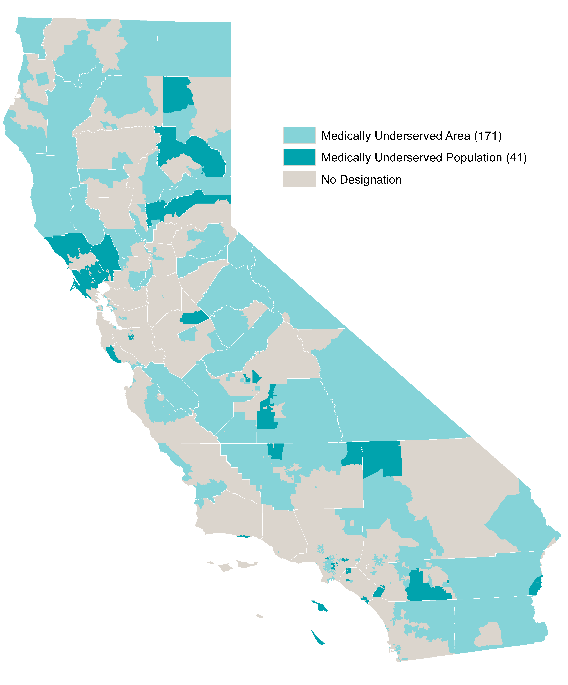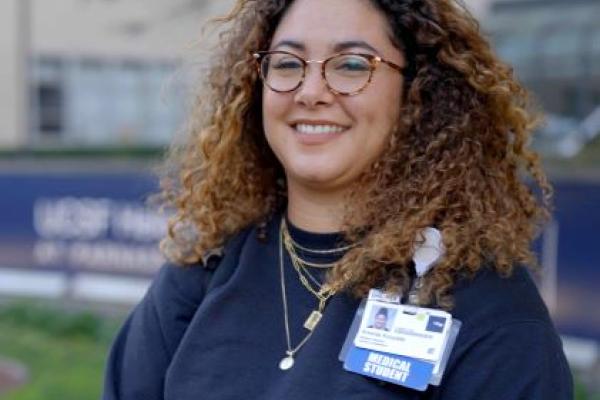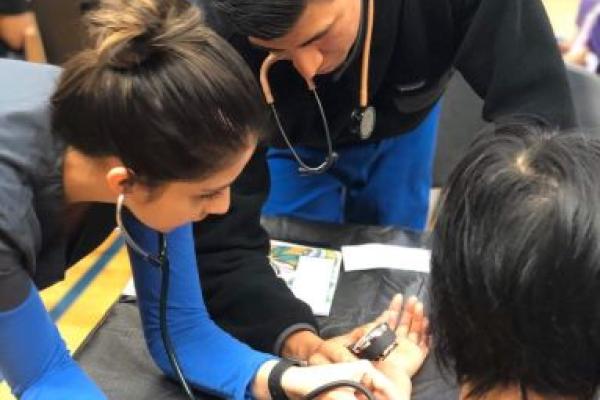As the most populous and culturally diverse U.S. state, California faces unique challenges in health care accessibility. California has large regions that are known as medically underserved areas and other regions with distinct medically underserved populations. (“Underserved” here means areas where — and groups for whom — quality health care is not accessible.)
In 2007, after a multiyear planning effort, the medical schools of University of California Health (UCH) began introducing an innovative training curriculum known as Programs in Medical Education (UC PRIME).

Medical school students who enter UC PRIME programs receive specialized coursework, structured clinical experiences, advanced independent study and mentoring. By equipping medical students with more training about the unique health needs of underserved various populations and areas, these future physicians are better able to meet the health needs of underserved populations.
Each program has a dedicated area of focus, such as rural health care and telemedicine, leadership and advocacy, urban underserved populations, Latinx health and health equity. UC PRIME graduates go on to work in underserved communities and with underserved populations. However, it is also important to underscore the significant role UC PRIME plays as a social mobility ladder, encouraging students from these same underserved communities to pursue a medical degree. Sixty four percent of UC PRIME students are from groups that are underrepresented in medicine.
UC PRIME Programs
The PRIME programs across UCH schools of medicine include:
- Rural PRIME at UC Davis, which improves access to specialty care in rural areas using UC Davis’ internationally recognized telemedicine program. Rural-PRIME students receive extensive training on the use of telemedicine and simulation equipment. This equipment has been shown to improve access to specialty care in rural areas statewide and provides a valuable tool for training future rural physicians.
- Tribal Health PRIME at UC Davis, which trains future physicians to identify, understand and serve the unique health needs of California's Indigenous, rural, urban and Central Valley communities.
- PRIME-Latino Community at UCI in Irvine, which focuses on Latino health issues, including increasing medical proficiency in Spanish and Latino culture. PRIME-LC is a five-year MD/Master’s program that includes coursework from the School of Social Sciences and the School of Medicine, experiential learning opportunities throughout California and an international clinical rotation.
- PRIME-Leadership Education to Advance Diversity–African, Black and Caribbean at UCI, which aims to produce future physicians who are committed to addressing the health needs of African, Black and Caribbean communities in California, the United States, and beyond. PRIME-LEAD-ABC seeks to develop the next generation of physician-leaders who are committed to public service, social justice and advocacy within ABC communities and who will work to reduce health care disparities in ABC and other underserved communities.
- PRIME-Leadership and Advocacy at UCLA, which trains future physicians and improves health care delivery systems in disadvantaged communities. PRIME-LA is a five-year concurrent/dual degree program focusing on the development of leaders in medicine addressing policy, care and research in health care for the underserved.
- PRIME-Leadership Education to Advance Diversity–African, Black and Caribbean at UC Riverside, which is designed to produce physicians who are specifically trained to address the health needs of the African, Black and Caribbean (ABC) communities of Inland Southern California and is offered in collaboration with the UC Irvine PRIME-LEAD-ABC program.
- PRIME-Health Equity at UC San Diego, which aims to reduce health delivery disparities. PRIME-HEq faculty work with students to identify populations or communities at risk for health disparities. Students then receive exposure, training and the opportunity to work with the identified group to better equip the students to improve health equity for the group.
- PRIME-Transforming Indigenous Doctor Education at UC San Diego, which prepares medical students for careers focused on providing healthcare to Native populations. PRIME-TIDE provides didactic and experiential training on the specific healthcare needs, cultural context in which that care is provided and how medical research may inform decisions made by healthcare personnel.
- PRIME San Joaquin Valley through UCSF Fresno, which recruits and prepares students for future careers in medicine in the San Joaquin Valley, addressing physician shortages in the region. San Joaquin Valley PRIME incorporates the unique expertise of UCSF, UC Merced and UCSF faculty at UCSF Fresno, as researchers, educators and leaders in the field of health care in the Valley.
- PRIME-Urban Underserved through UCSF, which provides care for people who are homeless and other underserved populations in urban communities. PRIME-US is five-year track at the UCSF School of Medicine and the UC Berkeley-UCSF Joint Medical Program for students committed to working with urban underserved communities.
[Growing up], it was really hard to find a doctor who spoke Spanish. I saw that as an issue as I was growing up, here in California. In a rural site [as part of Rural PRIME], it’s just you and the doctor. In that way, you’re able to get one-on-one teaching, you get a little more hands-on, and a lot more attention. They’re eager to teach, and they want to have you there …. Even though it’s hard as I’m doing it, and there are days where I’m questioning my sanity … I don’t see myself doing anything else.
Training a new generation of physicians
UC's PRIME programs are preparing physicians through specialized training and experiences to meet the needs of communities who have not had convenient, regular access to quality health care. Read the stories of two PRIME medical students working to make a difference.

A doctor who's trying to fix what is broken
A bad hospital experience led Aminta Kouyate to pursue a career in medicine.

To address physician shortage, Central Valley program looks to grow its own
As someone who suffered from chronic strep throat infections, Central Valley resident Vanessa Mora needed to go the doctor a lot as a kid. The problem was, all too often there wasn’t one.
Improving Access to Care Across California
All UCH health professional schools emphasize public service and caring for communities that have traditionally faced barriers to care or inadequate public health resources. But that’s not enough. UCH has opened new UC schools and programs in areas where additional health care is needed. For instance, while UC Riverside School of Medicine does not have a PRIME program, its purpose is to train doctors who want to work in the Inland Empire, an area that is underserved by primary care, with 35 physicians per 100,000 people. The region performs poorly compared to other regions in the state in almost all measurable health outcomes — especially in diabetes and coronary heart disease.
Explore how UCH is improving access to care across California
Using Data to Improve Population Health
Looking at data from across University of California Health allows us to look specifically at the health of certain populations. This helps us identify where some groups of people (or neighborhoods) do not have the same health outcomes as other groups. Health disparities exist across many conditions, including in cancer, heart disease and diabetes. By analyzing our data and sharing best practices across the UCH system, we can begin to identify better ways to address health inequities.
See how we’re working to improve the health of populations across California
